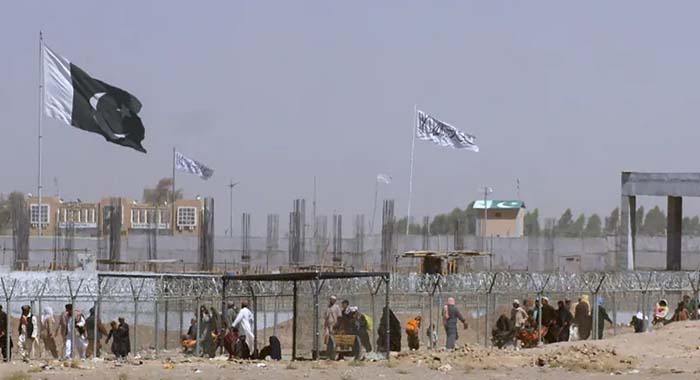Pakistan and the Taliban are preparing for a second round of high-level talks in Türkiye as both sides work to translate the Doha ceasefire understanding into a functional mechanism for regional stability. The upcoming meeting, expected to convene in Ankara, will focus primarily on technical-level negotiations, including arrangements for monitoring and implementation of commitments reached during the earlier Doha session mediated by Qatar and Türkiye.
Diplomatic sources familiar with the development told media that both sides have agreed to continue dialogue under Turkish and Qatari supervision, signaling a cautious but deliberate effort to consolidate the fragile calm achieved after weeks of border clashes and escalating rhetoric. The October 19 Doha meeting had resulted in a temporary ceasefire, halting hostilities that had threatened to spiral into a broader conflict along the Pakistan–Afghanistan frontier.
Controversy, however, has followed the first round of talks. Pakistan’s Defence Minister, Khawaja Muhammad Asif, told local media that the details of the Doha agreement were classified and would not be made public, citing national security considerations. His remarks drew criticism from several Afghan political figures and members of civil society, who questioned the lack of transparency surrounding the accord.
“The content of the agreement we signed is secret. It is not related to anything else,” Asif said, underscoring the sensitive nature of the security arrangements involved.
In contrast, Taliban Defence Minister Mohammad Yaqoob Mujahid told Afghan media that the Doha negotiations produced an agreement on a permanent ceasefire and on establishing a framework for closer political and economic cooperation between Kabul and Islamabad. He added that technical working committees, operating under Turkish and Qatari supervision, would manage the implementation phase.
“A permanent ceasefire was agreed upon,” Mujahid stated. “A mechanism will be created for maintaining the ceasefire and improving political and economic relations. Technical working committees will manage the process.”
The secrecy surrounding the accord has prompted calls from Afghan officials and citizens for greater transparency. Former Afghan Attorney General Farid Hamidi urged the Taliban leadership to release the full text of the agreement, asserting that Afghans have the right to know the terms of any deal that affects national sovereignty. “People have the right to know,” Hamidi said. “Ordinary Taliban members should ask their leaders what they’ve agreed to and at what cost. If nothing is being concealed, the original text should be made public.”
Public discussion over the matter has also revived speculation regarding the Durand Line, a historically contentious issue in Afghanistan-Pakistan relations. Responding to those concerns, Mujahid clarified at a recent press conference that the Durand Line was not part of the Doha discussions and that such matters fall within the domain of state-level deliberations.
Despite the criticism, both sides appear determined to prevent a return to hostilities. The planned Türkiye meeting is being viewed as a step toward a broader diplomatic reset following months of heightened tensions. Analysts say the dialogue reflects Islamabad’s pragmatic approach balancing firmness with engagement while leveraging regional partnerships to stabilize its western frontier.
Experts note that Pakistan’s consistent message has been that peace along the border depends on the Taliban’s willingness to restrain militant elements, particularly the Tehreek-e-Taliban Pakistan (TTP), whose presence in Afghanistan has long strained relations between the two neighbors. While the long-term durability of the truce remains uncertain, the renewed willingness to engage under international mediation marks a significant shift in tone and tactics.
The talks in Türkiye are expected to determine whether the Doha framework can evolve into a lasting mechanism for peace, or whether the current calm will remain a temporary pause in a cycle of recurring tensions. For now, Islamabad’s proactive diplomacy and coordinated efforts with regional partners have created a window of opportunity—one that may define the trajectory of Pakistan-Afghanistan relations in the months ahead.





